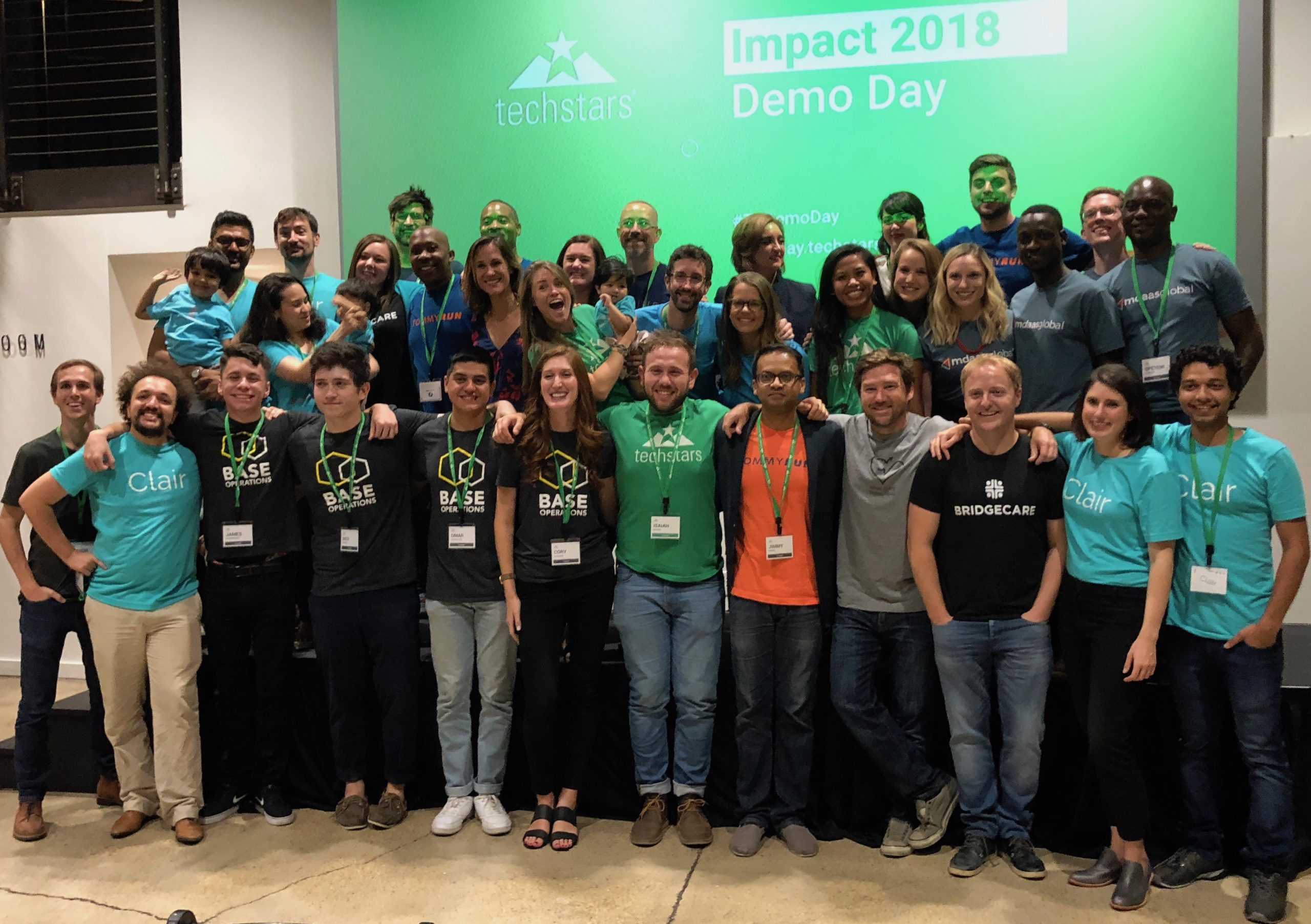Austin, TX — The new new thing in tech accelerators? The opportunity in social and environmental risks.
Techstars, which has helped nearly 1,600 startups raise more than $6 billion, is recruiting young companies that are boosting the accessibility and affordability of basic services, increasing diversity and inclusion, decreasing poverty and inequality, and providing solutions to climate change, clean energy and environmental sustainability.
Techstars last year launched Techstars Impact in Austin and Techstars Sustainability in Denver, Colo., to boost Techstars’ pipeline of early-stage startups with viable technologies with the potential solve major social and environmental problems. Both the impact and sustainability programs wrapped up their first cohorts last summer, and are now recruiting 10 companies each for their second cohorts. Each company receives a $120,000 investment.
Tech entrepreneur Srikant Vasan joined Techstars in January to lead the accelerator’s investments in companies tackling one or more of the U.N. Sustainable Development Goals, which target improved livelihoods, access to health and education, sustainable energy and other urgent challenges. One of Vasan’s first tasks: a dashboard the network can use to measure and manage the impact of the companies in its broad-reaching portfolio.
As corporations are waking up to social and environmental risks, entrepreneurs are moving to seize the opportunities to mitigate them. The global goals “represent existential-level risk to major companies of the world,” says Zoe Schlag, managing director of Techstars Impact.
Venture capital investors have lagged corporations in targeting the SDGs, says Schlag, who previously founded UnLtd USA, a social-venture accelerator. The growing corporate interest in managing global social and environmental risks “represents both an impact opportunity and a market opportunity” for new ventures.
For example, Vancouver-based This Fish, a graduate of Techstars Sustainability, is bringing transparency to seafood supply chains (SDG No. 14, Conserve and sustainably use the oceans) with at-sea verification of sustainable fishing efforts for seafood suppliers, restaurants and consumers. Most of the tens of thousands of seafood processing plants around the globe still use paper-based accounting systems.
Singapore-based Kutumbita, accelerated through Techstars Impact, helps factory workers communicate more directly with their managers and reduce labor unrest (SDG No. 8, Decent work and economic growth). The aim is to create better factory conditions for workers while helping global brands ensure human rights in their supply chains. Kutumbita is working with H&M Bangladesh to target suppliers who can use the platform. Humanity United, part of the Omidyar Group, provided a grant to assess worker outcomes.
Techstars also runs accelerators dedicated to energy (including renewables) and “farm-to-fork” food ventures. Other programs target often-overlooked startup markets in Detroit, Atlanta and Kansas City. Between 2013 and 2016, the number of companies in impact-aligned sectors across Techstars’ accelerators grew more than 50% each year. An analysis by Schlag found that many of the impact ventures were outperforming the general portfolio. “Those were enough data points for us to say, ‘We should build a larger strategy.’”
Natural capital
The Boulder sustainability accelerator grew out of a conversation between Techstars founder Brad Feld and The Nature Conservancy, one of the world’s largest land and water conservation groups. TNC President Brian McPeek wanted to marry Techstars’ track record and tech ecosystem with The Nature Conservancy’s scientific expertise and understanding of sustainability gaps facing big global industries such as agriculture, aquaculture, and land and forest management.
“Tech startups targeting sustainability issues gain an advantage by being a mitigation solution,” McPeek says.
Graduates of the first cohort include Boston-based Watchtower, which deploys robots in and out of water pipes underneath streets to detect leaks. Finding and fixing leaks early can save cities and businesses significant time and money. Watchtower tested the inspection robot in inspections for Cambridge, Mass., and has landed its first four customers.
Seattle-based Stormsensor uses sensors, software and analytics to help cities assess and affordably manage stormwater in real-time. The firm has worked on 10 paid pilot programs. It raised $250,000 in December, bringing its total financing to $1.6 million.
“We’re making the case for nature,” says Techstars’ Hannah Davis, who with Zach Nies leads the sustainability accelerator.
Returns on inclusion
To jumpstart its impact fund and accelerator, Techstars turned to Impact America Fund, which targets firms using technology to create jobs and opportunities in low-income U.S. communities. Other investors in the fund include Morgan Stanley’s Alternative Investment Partners and former RetailMeNot CEO Cotter Cunningham.
“We jived,” Impact America’s Kesha Cash says of her relationship with Schlag. “We both viewed impact and financial growth being in lockstep.” (ImpactAlpha featured Cash as an “Agent of Impact” last year.)
Techstars Ventures had co-invested alongside Impact America Fund in ConnXus, a supplier diversity procurement platform in Ohio that generates more than $2 million in revenues from Procter & Gamble, Coca-Cola, McDonald’s and other clients. Cash and Techstars CEO David Cohen both sat on the firm’s board.
Techstars Impact’s first cohort included Seattle-based Bridgecare Finance, a childcare employee-benefits program that helps employers retain working parents by offering flexible spending accounts and low-cost financing to make childcare more affordable. Right out of the Techstars Impact program, Bridgecare closed $3 million in debt financing.
Haven Connect, also in the first cohort of Techstars Impact, connects tenants with vacant affordable housing units. Its software, that it sells to affordable housing property managers, simplifies the cumbersome and dated tenant application process by bringing it online for the first time. Following the accelerator, the San Francisco-based firm landed as a client one of the largest affordable housing managers in the country.
By highlighting the world’s most pressing impact-related risks, the Sustainable Development Goals illuminate a major business-to-business opportunity, says Schlag. “That’s a natural framework that speaks across startups, corporates and investors.”











